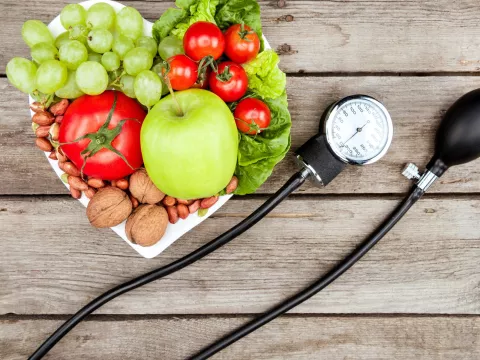- AdventHealth

Nearly 70 million people in the United States have high blood pressure, but only about half of them have it under control, according to the Centers for Disease Control and Prevention. That said, high blood pressure may affect you or a loved one. As we recognize American Heart Month, Rajesh Shah, MD, cardiologist at AdventHealth, explains why it’s so important to keep an eye on your blood pressure for heart health and a greater sense of complete well-being.
What are the factors that affect blood pressure?
Hypertension (or high blood pressure) is fairly complex. It is characterized as primary hypertension and secondary hypertension. Primary is due to environmental and genetic factors.
Primary hypertension tends to run in the family and it may be triggered by obesity, diet, environment, stress and sedentary lifestyle. You may be able to keep it under control by exercising, maintaining a healthy weight and limiting your salt intake.
Secondary hypertension, a less common form of the disease, results from specific conditions like kidney failure or a tumor. Sleep apnea may be a contributing factor. In this case, if you treat the underlying condition, it’s possible that the hypertension may be better controlled and improve over time.
What causes high blood pressure?
High blood pressure is defined as greater than or equal to 140 mm Hg systolic pressure over 90. It happens when your blood moves through your arteries at a higher pressure than normal.
What can you do to control it?
It’s not possible to control all risk factors for high blood pressure, but there are certain things you can do to help prevent or control it.
One is changing your diet, exercising and maintaining a healthy weight. The second is trying to adhere to the American Heart Association's guide for sodium salt restriction. The CDC states if you reduce the average amount of salt or sodium intake from 3,400 milligrams to 2,300 milligrams per day that may reduce cases of high blood pressure by 11 million. Here are some tips to reduce your salt intake from the American Heart Association.
The third way to help manage blood pressure is with medication. Your doctor may recommend personalized medication therapy to help keep your blood pressure within a healthy range. And if you have an anatomic or genetic cause like a tumor or narrowing of the kidneys, you may need surgery or a procedure to correct the underlying condition.
Why is it important to pay attention to your blood pressure numbers?
It’s quite important to monitor your blood pressure over time, and especially if you begin to see your blood pressure increasing. This helps your doctor understand what might be causing changes in your high blood pressure and determine how to treat it. This could mean increasing or decreasing your medications in order to meet your body’s needs.
If left uncontrolled, what conditions can high blood pressure lead to?
There are almost 1,000 deaths each day where high blood pressure was a primary or contributing cause, according to the CDC.
High blood pressure can increase the chance of heart failure, blindness, strokes and vascular problems that can lead to potentially life-threatening problems. Additionally, uncontrolled hypertension may lead to kidney problems.
Should you check your numbers at home, in addition to when you visit your doctor?
Yes. Check your numbers at home and again at the doctor’s office to make sure that your numbers match up.
Blood pressure monitors are available at drug stores, and you don’t need a prescription. Monitoring it at home can help you take a proactive role in understanding when your blood pressure is higher. This information can then be shared with your doctor as you work together to develop a tailored plan to help keep your blood pressure in a healthy range.
We care about you. And if there’s a way to protect your health, we’re here to be your best defense. Managing your blood pressure is just one important part of helping you feel whole, so let us help you live your best life. Connect with one of our whole-health experts today.





